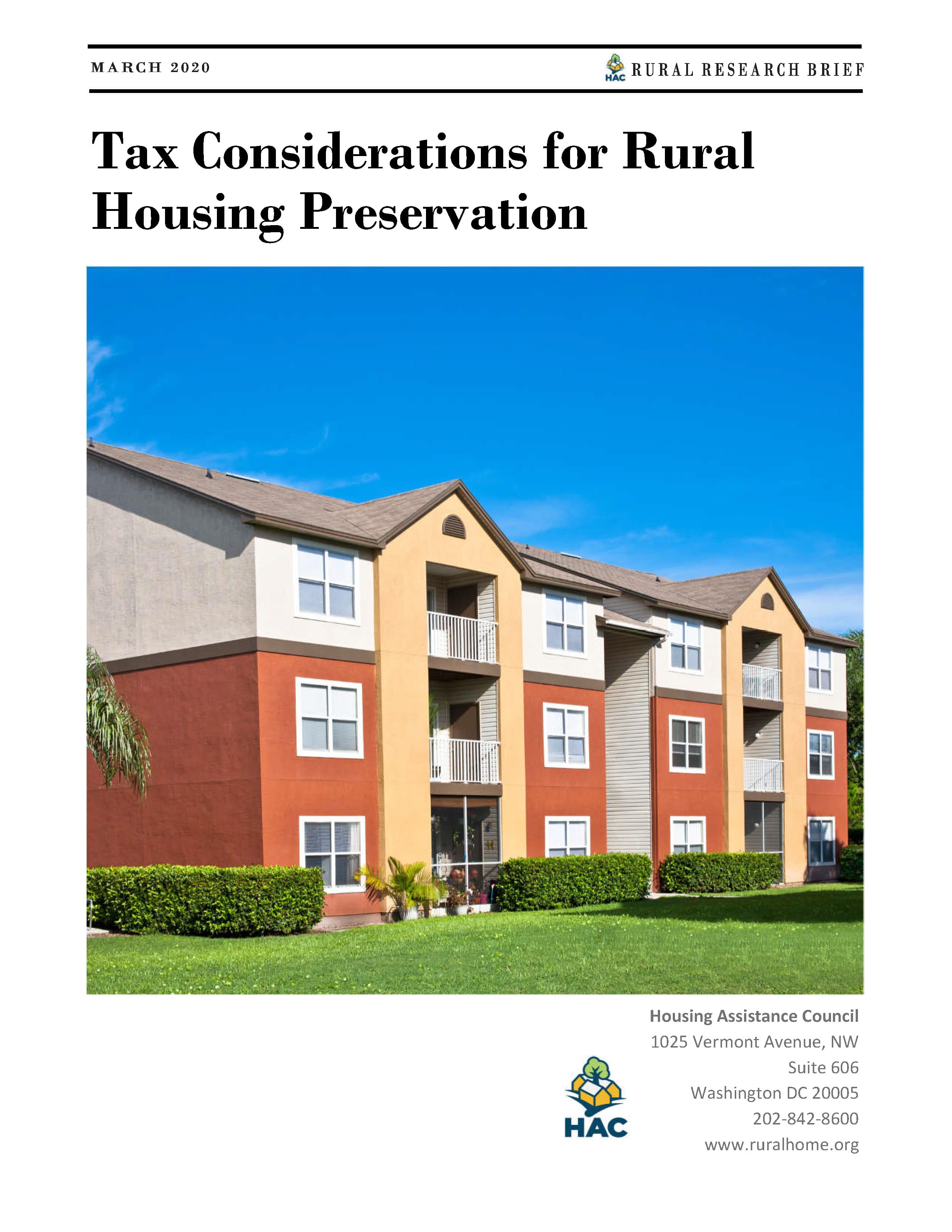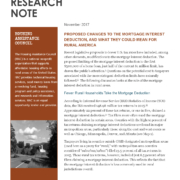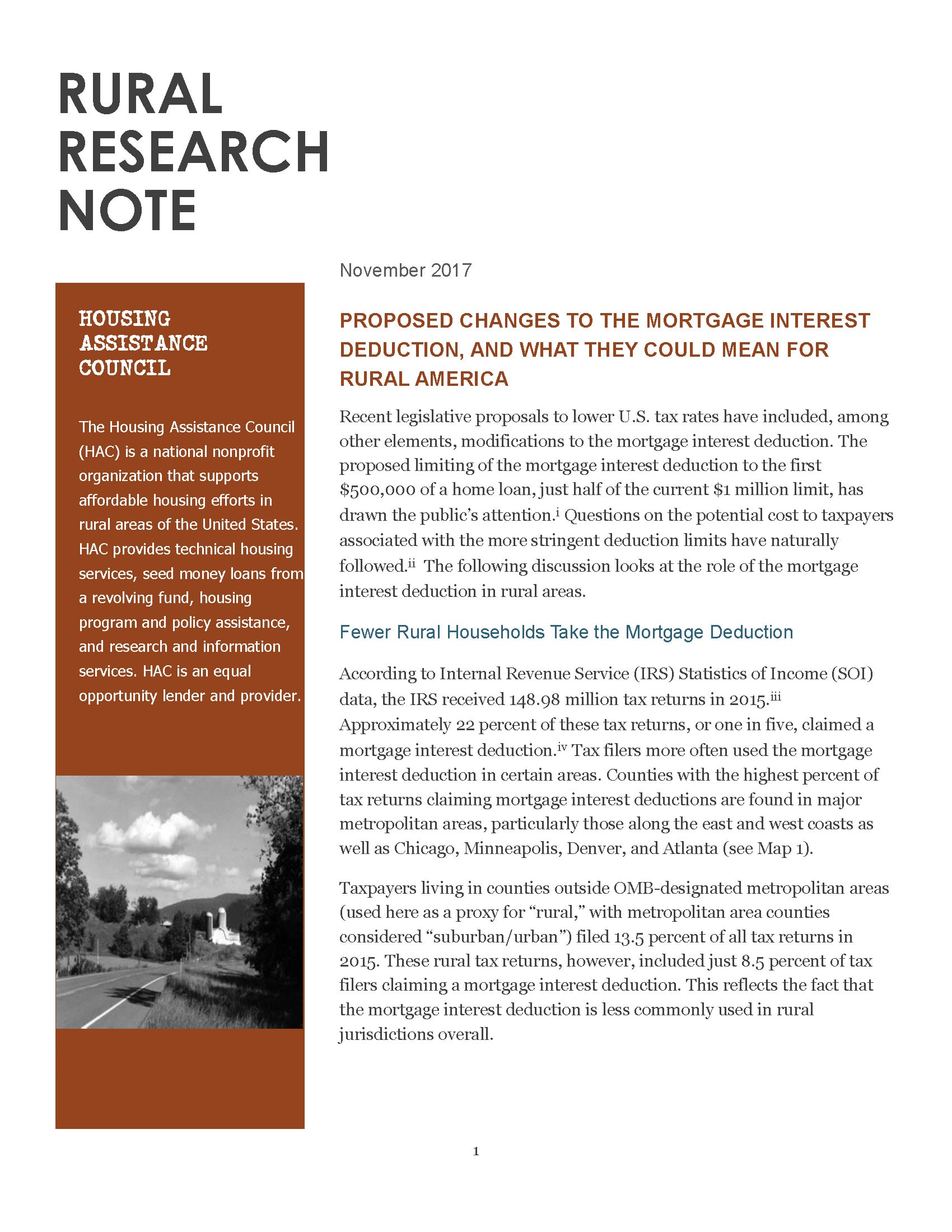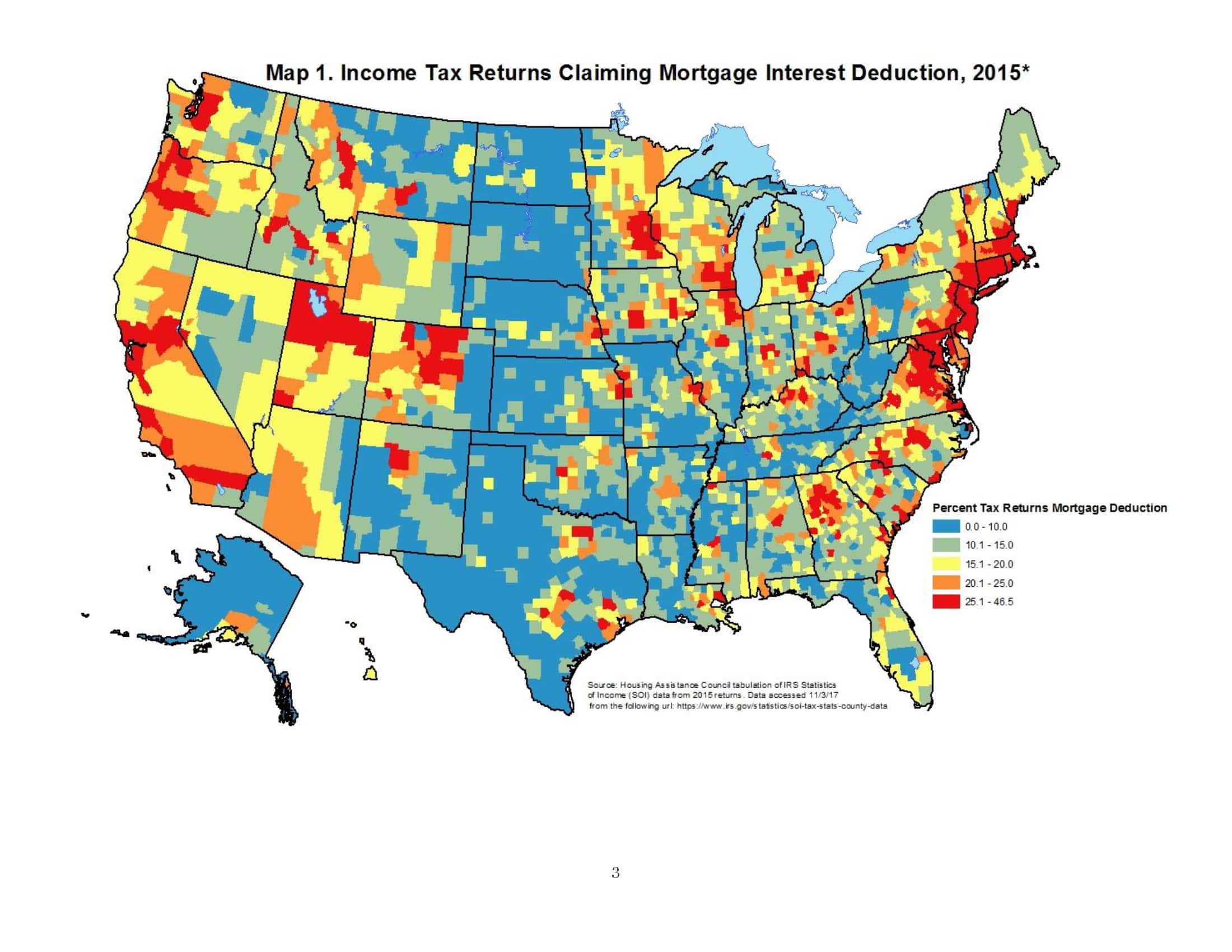Tax Considerations for Rural Housing Preservation
 A crisis is building for many federally supported rental properties, which are an important source of affordable housing for low-income rural residents. Particularly, USDA Section 515 mortgages are nearing the ends of their terms, and property owners may wish to convert their properties to other uses (for example, market-rate housing) or sell them to others who will convert them. If owners sell to entities that will continue to use them as affordable rentals, rural tenants benefit and the existing federal investment in these properties is protected. Yet many owners are reluctant to sell their properties for preservation because they will experience adverse tax consequences at sale. This paper explores those tax consequences, indicates where they may have the greatest impact, and suggests ways they might be mitigated in order to encourage preservation.
A crisis is building for many federally supported rental properties, which are an important source of affordable housing for low-income rural residents. Particularly, USDA Section 515 mortgages are nearing the ends of their terms, and property owners may wish to convert their properties to other uses (for example, market-rate housing) or sell them to others who will convert them. If owners sell to entities that will continue to use them as affordable rentals, rural tenants benefit and the existing federal investment in these properties is protected. Yet many owners are reluctant to sell their properties for preservation because they will experience adverse tax consequences at sale. This paper explores those tax consequences, indicates where they may have the greatest impact, and suggests ways they might be mitigated in order to encourage preservation.
Tax consequences arise as a result of depreciation over the lifetime of a rental property. Federal tax law allows a rental property owner to reduce their annual tax liability by claiming depreciation in the property’s value every year. When the property is sold, however, tax law requires that a portion of the taxes deferred by depreciation must be recaptured. If a property’s market value has appreciated over time, a higher sales price can cover the depreciation recapture and also provide the seller with a profit. If the value has not appreciated, however – as is the case in many rural areas – or when a purchaser needs to buy at less than market value in order to preserve affordability, the tax liability can use up most or all of the sales receipts.
The paper presents several technical, market and legislative strategies that could help mitigate the identified tax-related barriers and enhance preservation efforts.




